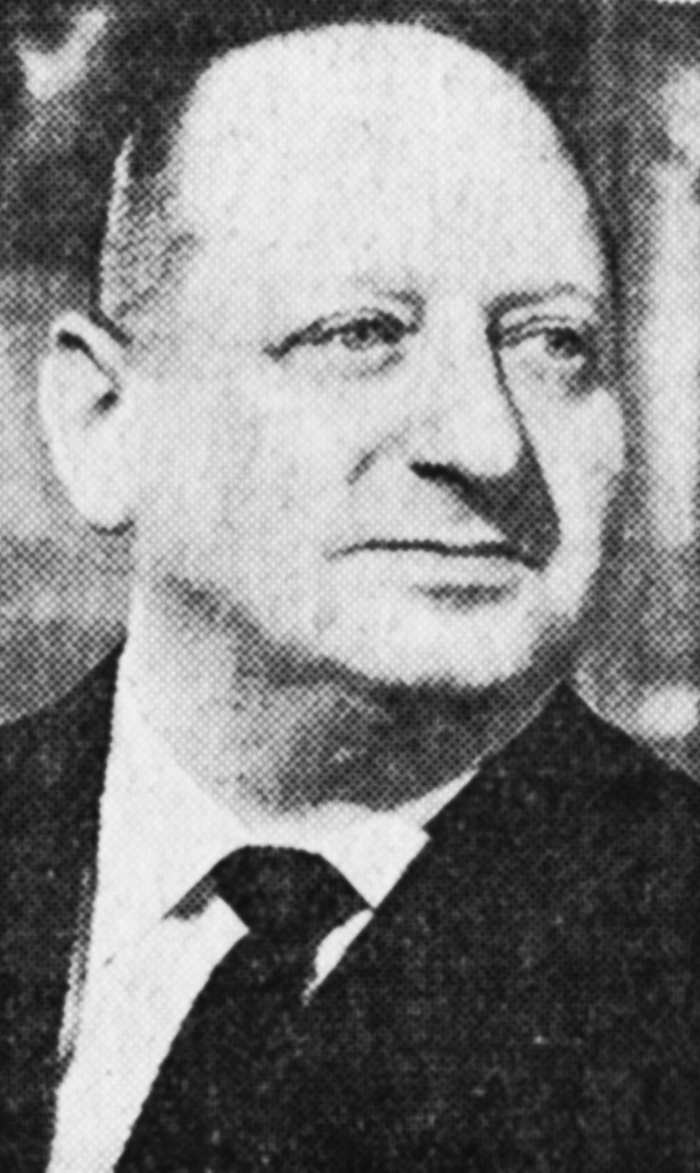BLAIR THOMSON presents a profile of SIR LEW GRADE, Deputy Chairman and Chief Executive, Associated Television Corporation Ltd.

FOR a man who started life as one of three brothers in a struggling Jewish refugee family in London’s East End and who claims never to have had any ambition, Sir Lew Grade has not done too badly.
Millionaire. International business tycoon, a Knight of the Realm (for services to export) and unchallenged king of the showbiz world are titles he has earned — not inherited — by such sheer hard work and long hours of non-stop activity that the mind is left boggling.
Most heads of big business — Sir Lew is chief executive of the multi-million pound Associated Television Corporation, which embraces films, theatres, property development, “canned” music, gramophone records and theatrical costumes as well as the Midlands ITV company, ATV Network Ltd. — take advantage of their position, possibly with some justification, by not arriving at the office until about 10 a.m., having a two-hour-plus lunch break and being away from the bustle of central London before the rush hour.
Not so Sir Lew. He is usually half-way through his mail in his spacious office in ATV House, Great Cumberland Place, London before even the cleaners arrive for the morning dustround.
And as often as not he is still on the phone — possibly clinching another export deal with Japan, Denmark, Mexico or America (or all four!) — long after the last of the Junior staff have packed into the homeward-bound tubes and commuter trains.
Nor is it unknown for people high in the business world to be something less than friendly and approachable. Yet Sir Lew is recognised even by his rivals — I don’t think he has a real enemy in the world — as a fair and very human person, who can be approached direct by the lowliest office boy and asked for a rise. And get it.
This friendliness is part of the secret of his success, for he is as much a showman as a showbiz-man.
When he smiles, eyes twinkling in a chubby, round face, pushes a ten-inch-long cigar — his “trade mark” — into your top pocket and, in almost a caricature of his race, spreads his hands wide and says: “My boy — for me, you’ll do it, won’t you?” it takes a very hardhearted person to say “No”.
It is this persuasiveness, backed by an unbroken record of promises fulfilled, that has helped him to sell millions of dollars worth of programmes around the world and earn his company two Queen’s Awards for export and himself a knighthood.
When he says a programme will be good, it usually is. As he would put it, with disarming immodesty: “As an agent, no one ever questioned my judgment. If I said it was great, they accepted it. I was usually right.”
This trust in his judgments and promises, built up over the years since those days when he was just another agent in the showbusiness jungle, has grown to such a pitch that he can even sell programmes that, at the time the contracts are signed, are not even on the drawing board.
He has the confidence of the rich and the successful — but it is an innate confidence, not born of his position and wealth. And he is certainly the only millionaire I can believe when he says he would do what he does for nothing and would start again from scratch if his empire collapsed.
There is, of course, a tough side to Sir Lew — the toughness that enables him to survive and succeed as a business man in the entertainment jungle, it is rarely seen outside the boardroom or away from the negotiating table; and, when it is, it is in response to the one criticism he will react to angrily: that he serves up in TV programme terms only what the public wants.
“Of course I do,” he says. “But what is wrong with that? I know what the public want — they want to be entertained. And that is what I am trying to do.”

